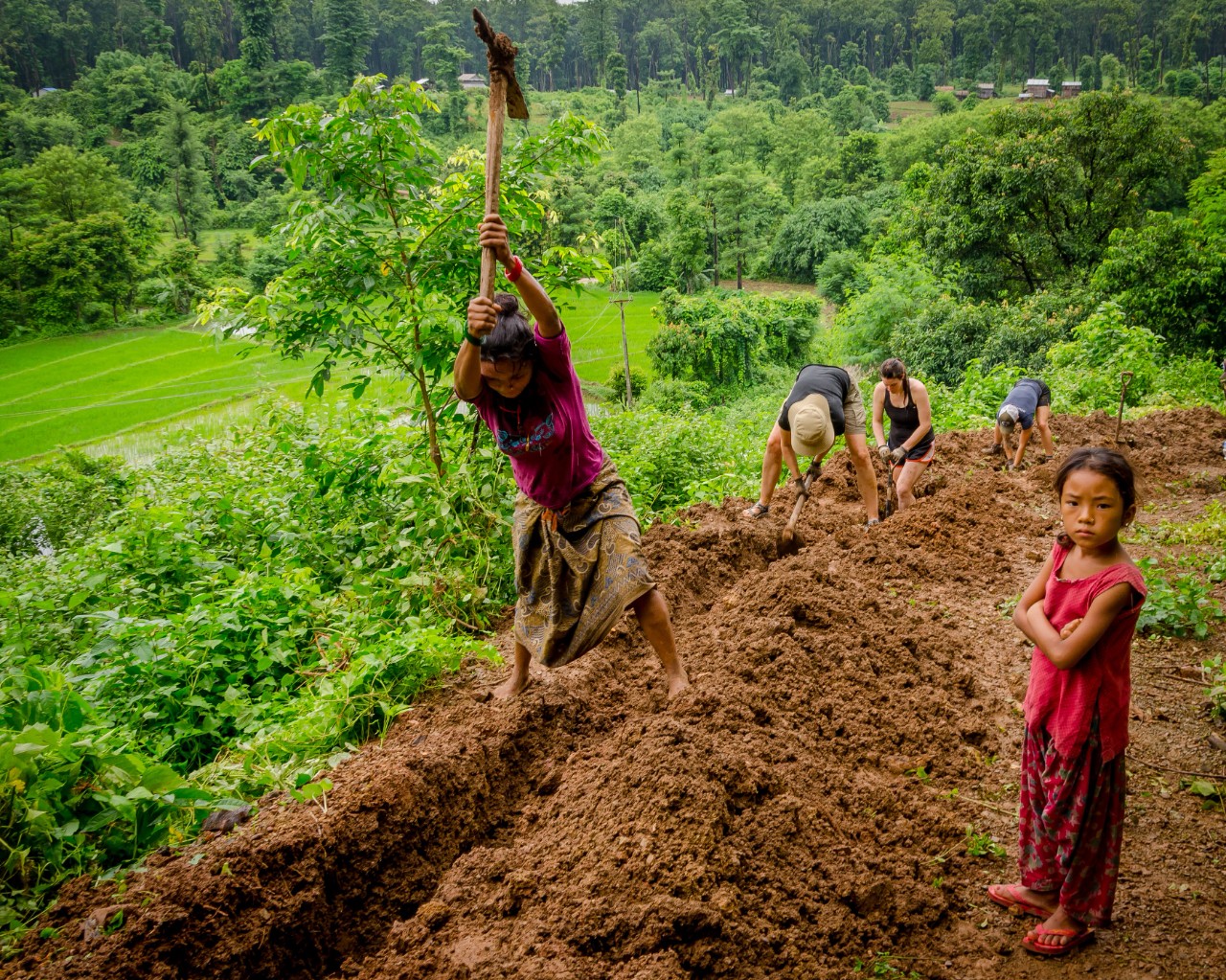Aged just 11 years, one of the plaintiffs in an ongoing US court case brought by International Rights Advocates against some of chocolate’s most dominant corporations, is alleged to have been lured from his home in Kouroussandougou, Mali, with the promise of lucratively paid work in the Ivory Coast. It is claimed the boy then worked “for two years without ever being paid, often applying pesticides and herbicides without protective clothing.”
It’s a tale too-often repeated in Ivory Coast and Ghana – the two countries which produce 70% of the world’s chocolate between them. 41% of children living within their cocoa-growing regions are involved in child labour, to the detriment of their health and education – a percentage that has increased over the last 10 years despite promises from highly influential ‘big Cocoa’ businesses (including Mars, Nestle, Barry Callebault, Mondelez, Lindt and Hersheys) to tackle the issue.
While not all labourers have been trafficked – although this appears to be particularly rife in the Ivory Coast - physical punishments and a lack of personal freedom are part and parcel of life on cocoa farms. A former cocoa slave, Aly Diabate, told the BBC “The beatings were a part of my life. I had seen others who tried to escape. When they tried, they were severely beaten.” For child-labourers the work is often dangerous – using machetes to clear forests and cut bean pods and spraying plants with industrial agricultural chemicals with no protection.
Ben Greenfield, UK country manager for Tony’s Chocolonely, a Dutch chocolate company with a mission to make 100% slave-free chocolate the norm, explained the problem in an interview earlier this year. It is, he says, the seven big chocolate processors and manufacturers which dominate the middle of the supply chain who are the driving force behind persistent inequality. They hold all the power - keeping wages for producers low whilst ensuring profit margins are high. Nyagoy Nyong'o, the Global CEO of Fairtrade International, echoes this. “It's about not earning a living income. It's about farmers struggling, but not getting the returns that they should get from the products that they grow.” Where cocoa producing families cannot afford to hire workers because they are not paid enough for their crop, they hire children instead.
Tony’s Chocolonely, is attempting to break the mould. Quite literally. Instead of neat rows of squares, its chocolate bars are divided into a maddening mish-mash of large and small pieces to highlight that not everyone in the chocolate industry gets a fair deal. Tony’s aims to make change happen, both through their own actions and supply chain and by calling the world’s attention to an issue that has, for the most part, been swept under the corporate chocolate rug for too long.
But now Tony’s have been called out. In February 2021 it was axed from The Slave Free Chocolate List for sourcing its chocolate from Barry Callebault – one of the seven ‘Big Cocoa’ corporations intrinsically linked to the use of child labour on cocoa farms in West Africa, and one of the companies named in the International Rights Advocates’ lawsuit. And with investigators finding illegal child labour on even Fairtrade certified farms it seems there is no sure way to tell whether the chocolate you are eating is the product of exploitation.

So, should we be ditching chocolate for good? Is there any hope for truly guilt-free chocolate indulgence? With its extraordinary level of damaging child labour, alongside little transparency from the powerful cocoa companies, there’s a real case to be made for avoiding any chocolate with cocoa sourced in West Africa. But Tony’s would disagree. They argue that by working with Barry Callebault they can show it is possible to have a 100% traceable slave-free supply chain even at scale. They say “We want to show the biggest chocolate brands that it is possible to make delicious, profitable chocolate that is free from modern slavery and illegal child labour. If we made our chocolate ourselves, big chocolate companies could disregard our 5 Sourcing Principles as it wouldn’t be possible for them to adopt or use at scale.”
And while it hasn’t found a case of modern slavery in its supply chain, even Tony’s doesn’t claim to be completely child-labour free. So rife is the problem in Ghana and the Ivory Coast that instances of illegal child labour have been found on farms that produce its cocoa beans. But, crucially, what it does highlight is that a 100% traceable supply chain is possible – and is the key to ending the ongoing exploitation in cocoa production. “Most big chocolate companies do not know how many cases of illegal labour there are in their cocoa supply chain, so they cannot work to remediate them. But because we have a 100% traceable supply chain (as validated by PwC in our annual reports), we can take 100% accountability for eradicating the problem.”
The chocolate industry is worth a staggering $140 billion. Certainly significant enough to wield a powerful blow against illegal child labour and modern slavery. Consumers need to demand more transparency, and laws are needed to ensure companies take responsibility for their supply chain. But perhaps, as Tony’s Chocolonely is trying to do, the only way to effectively change a deeply unequal, exploitative industry - and eradicate modern slavery - is from within.
Written by Sarah Faith
Want to give to an organisation fighting slave labour? Donate to Solidaridad, who work to clean up supply chains across the world.





